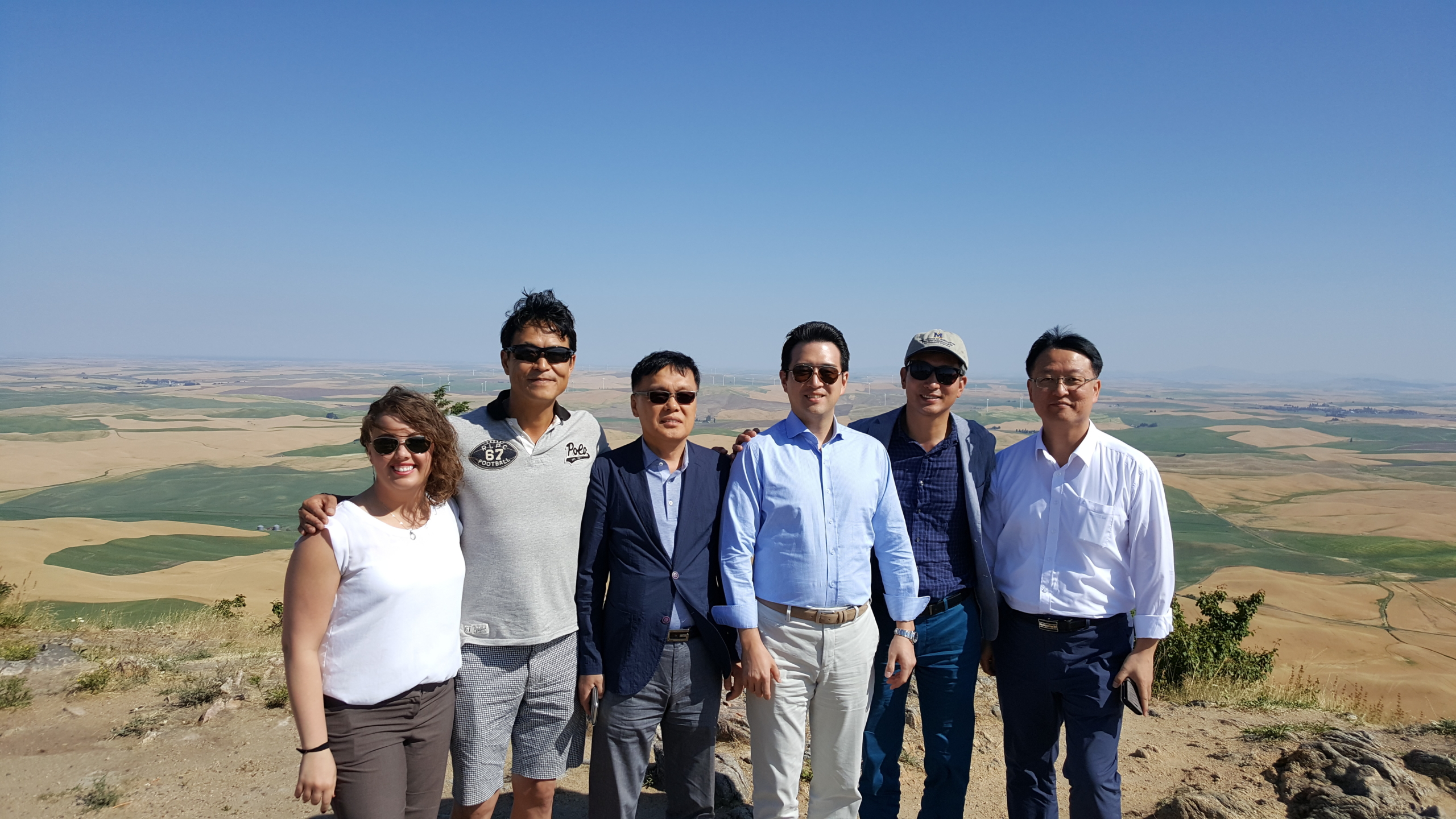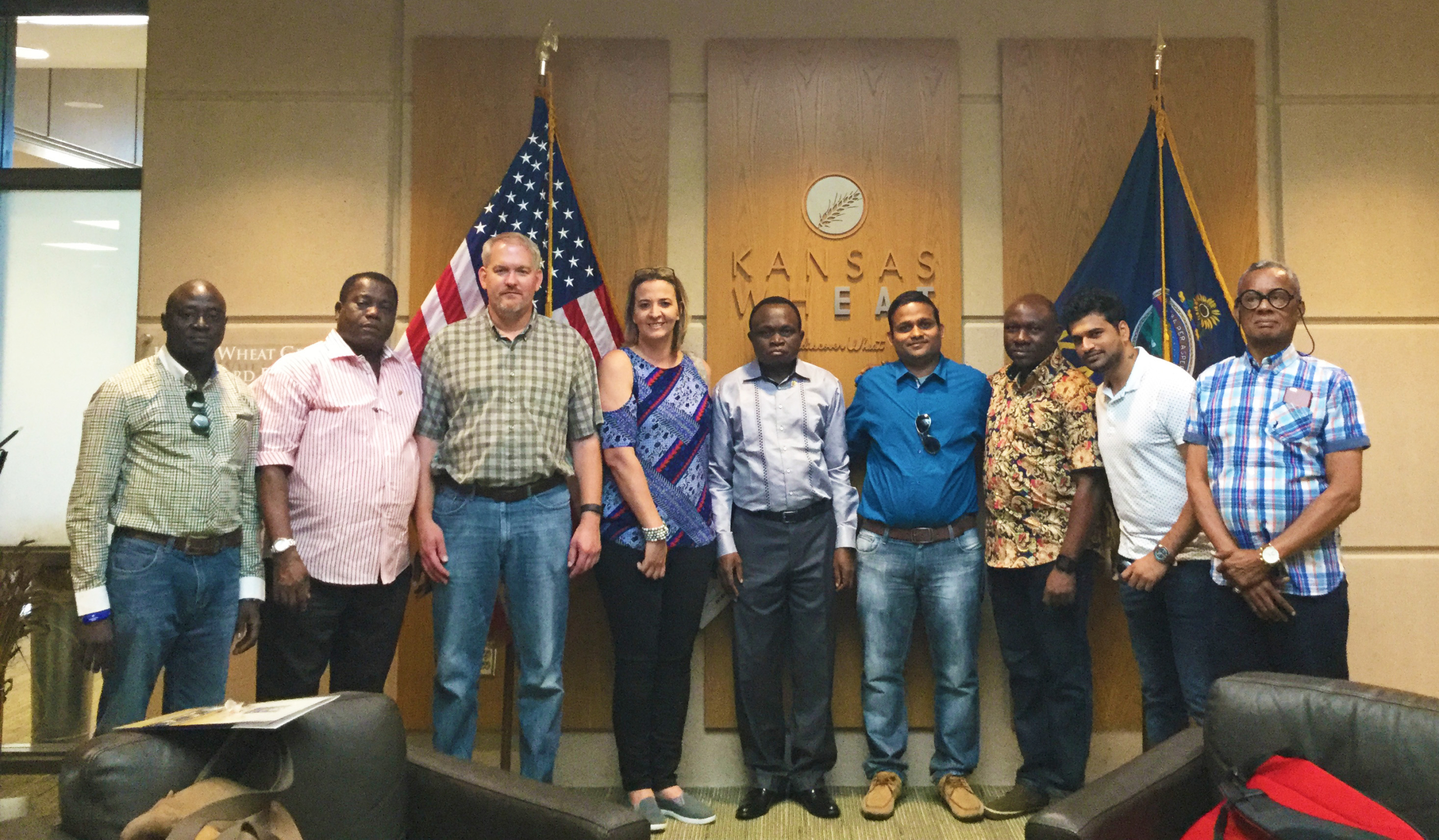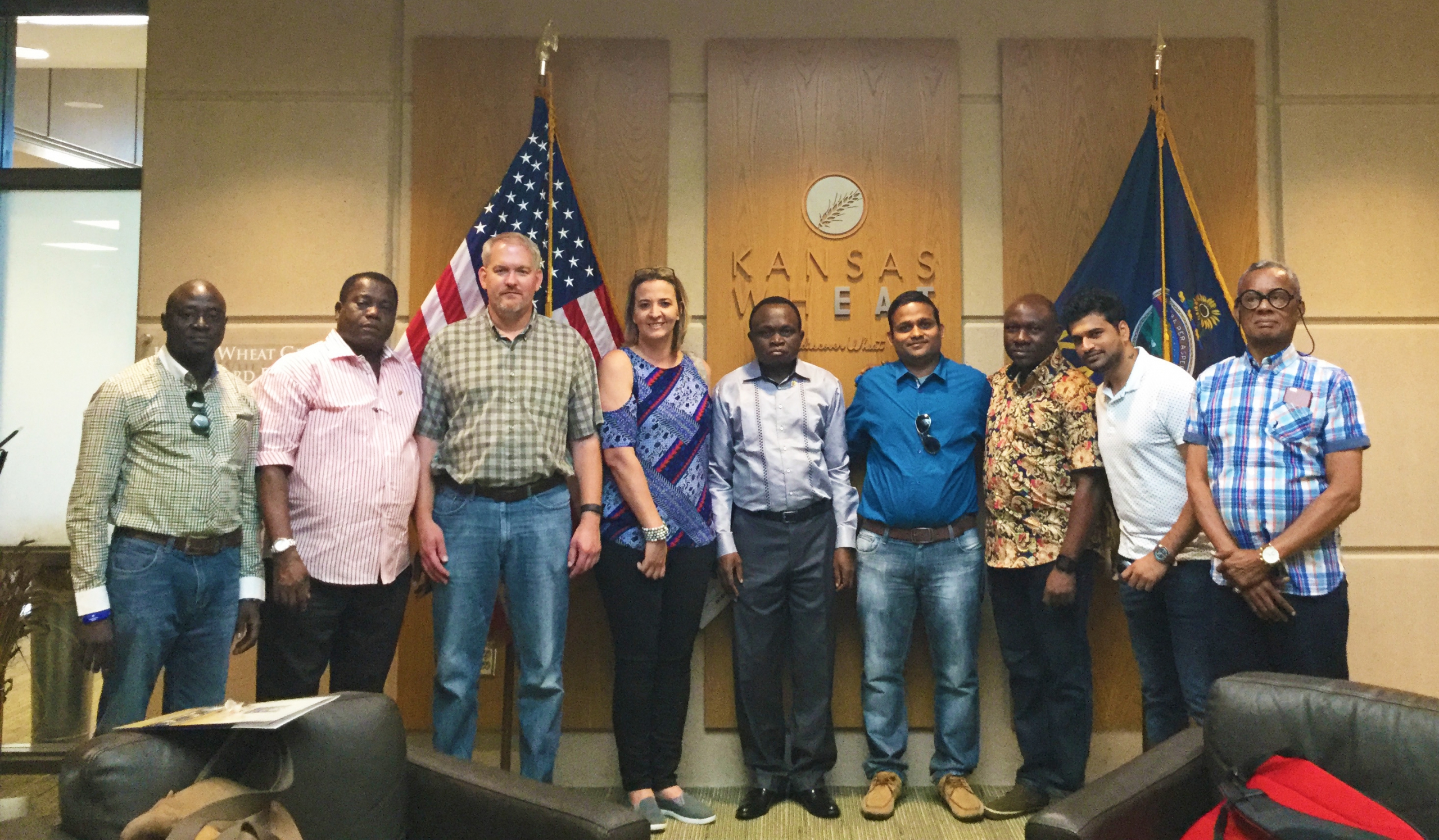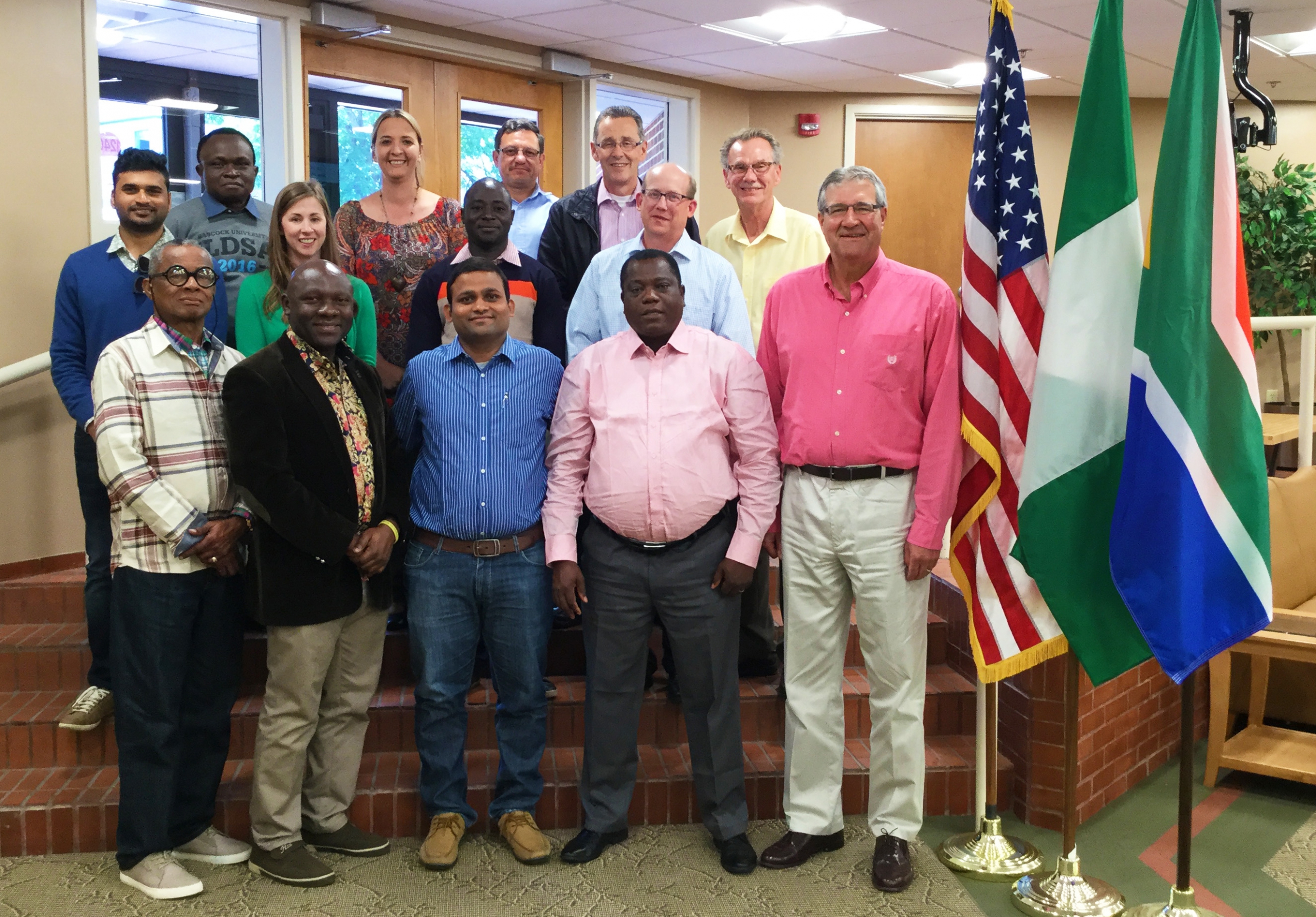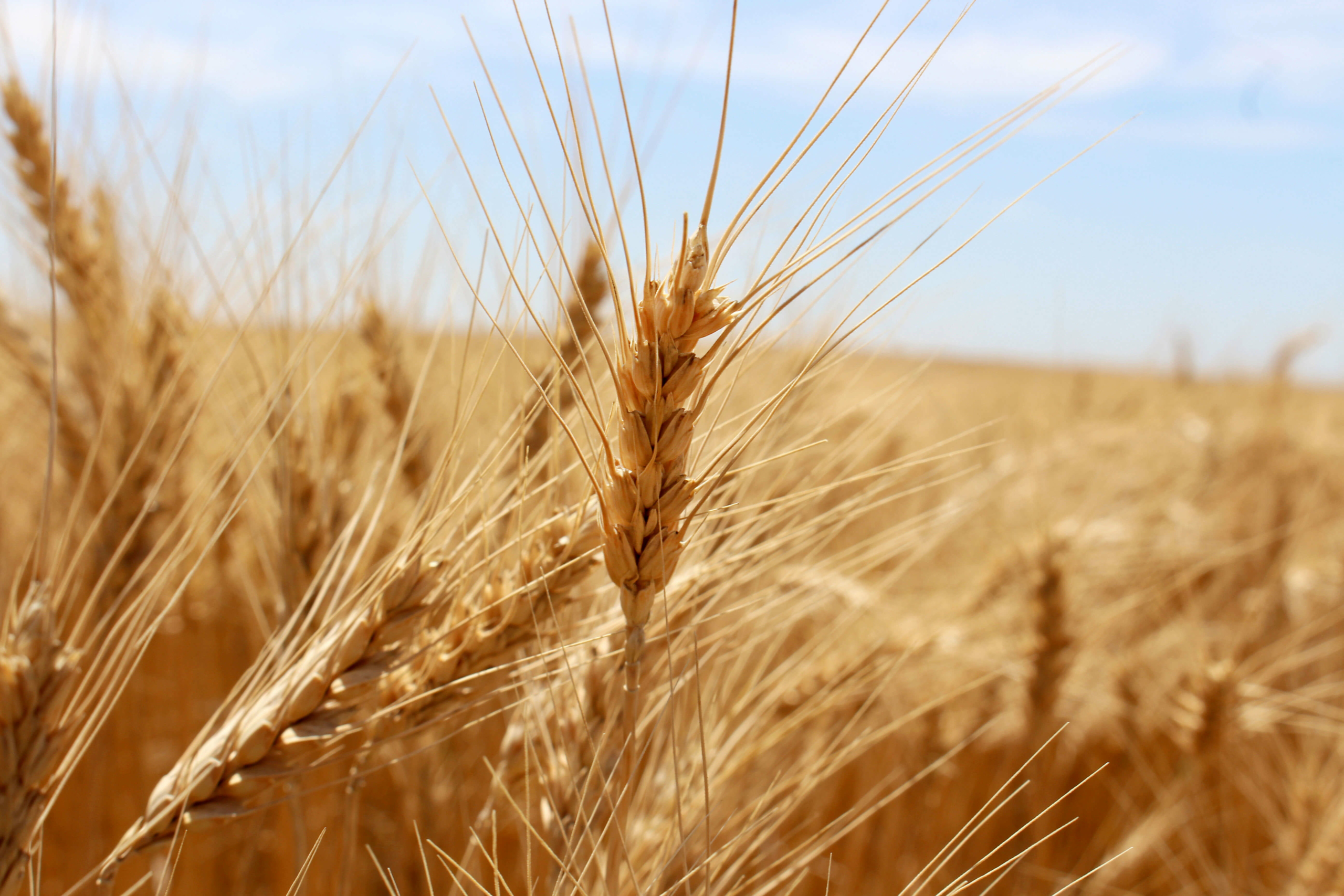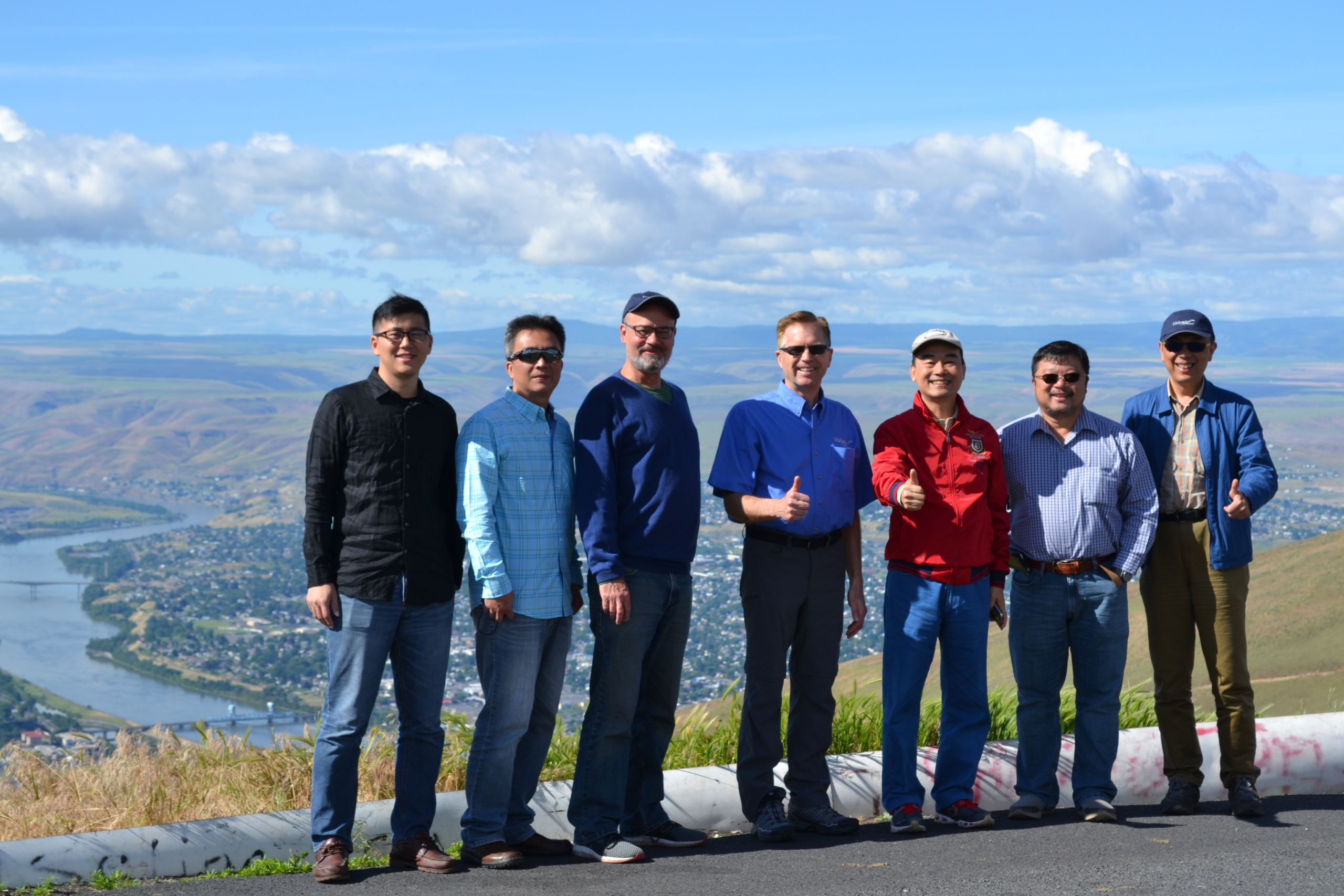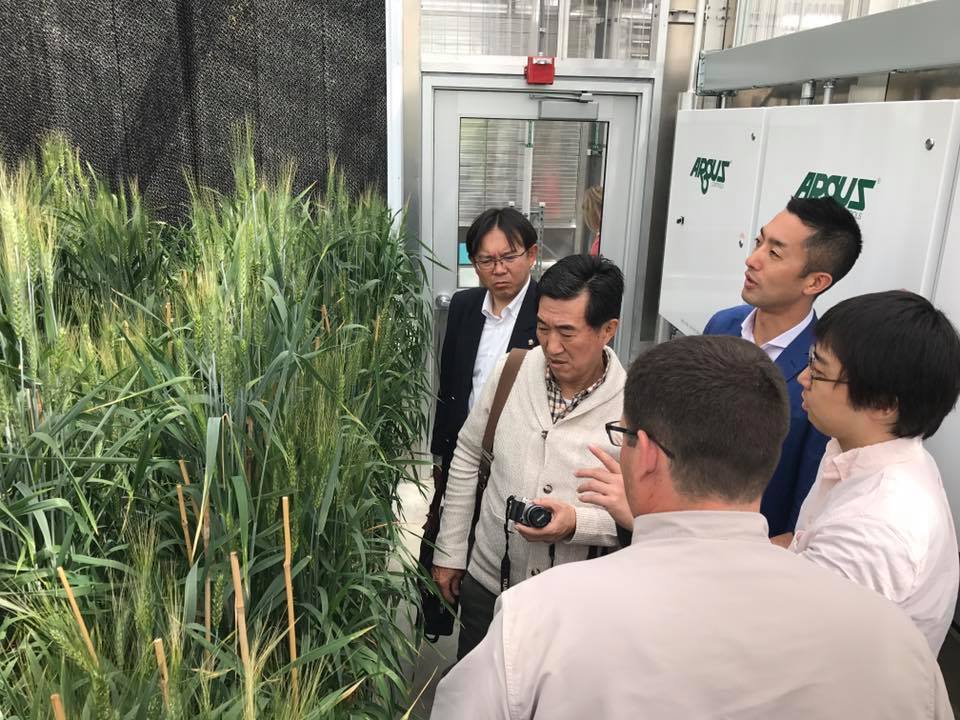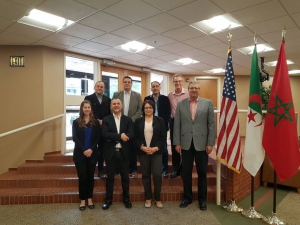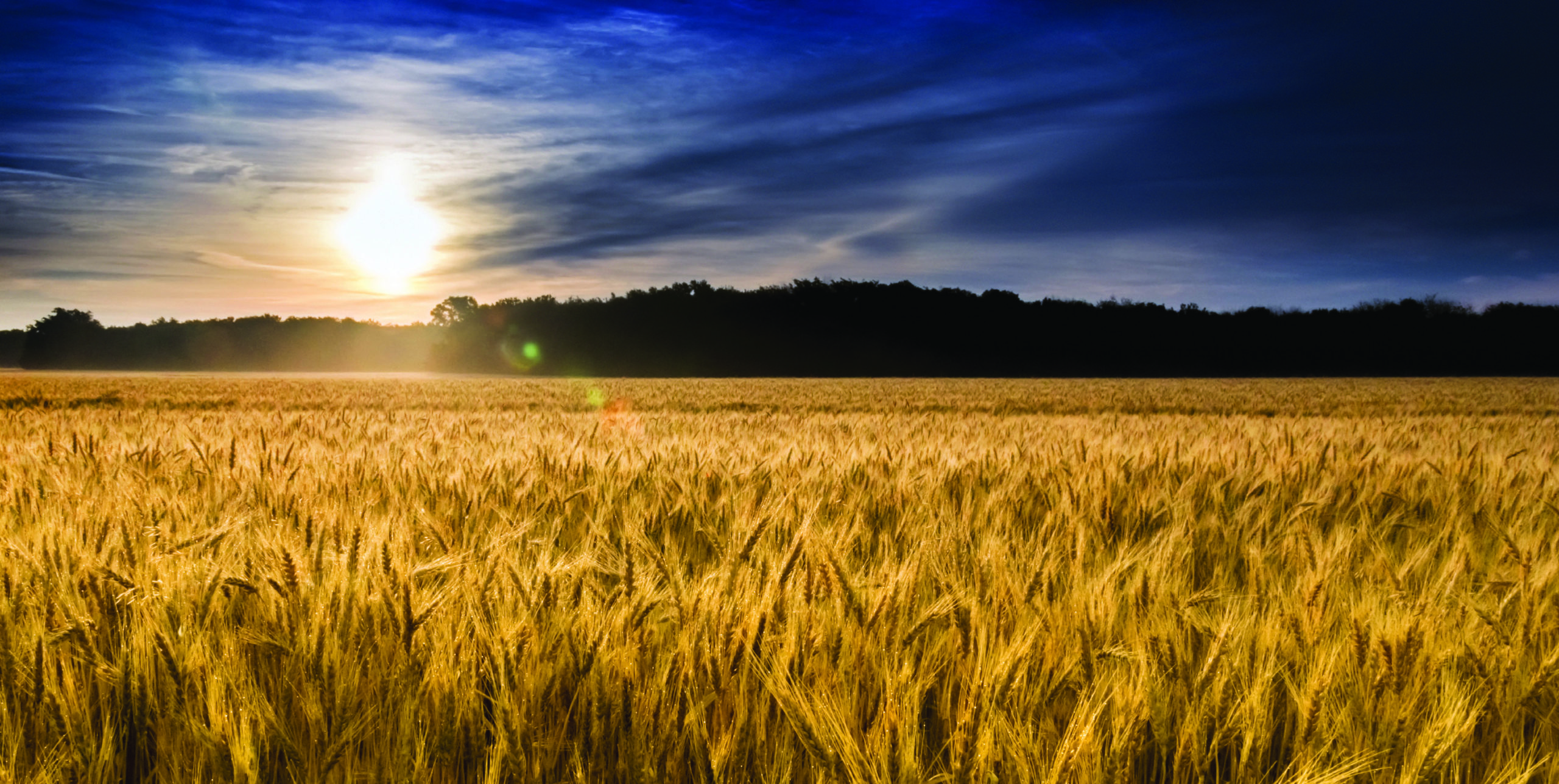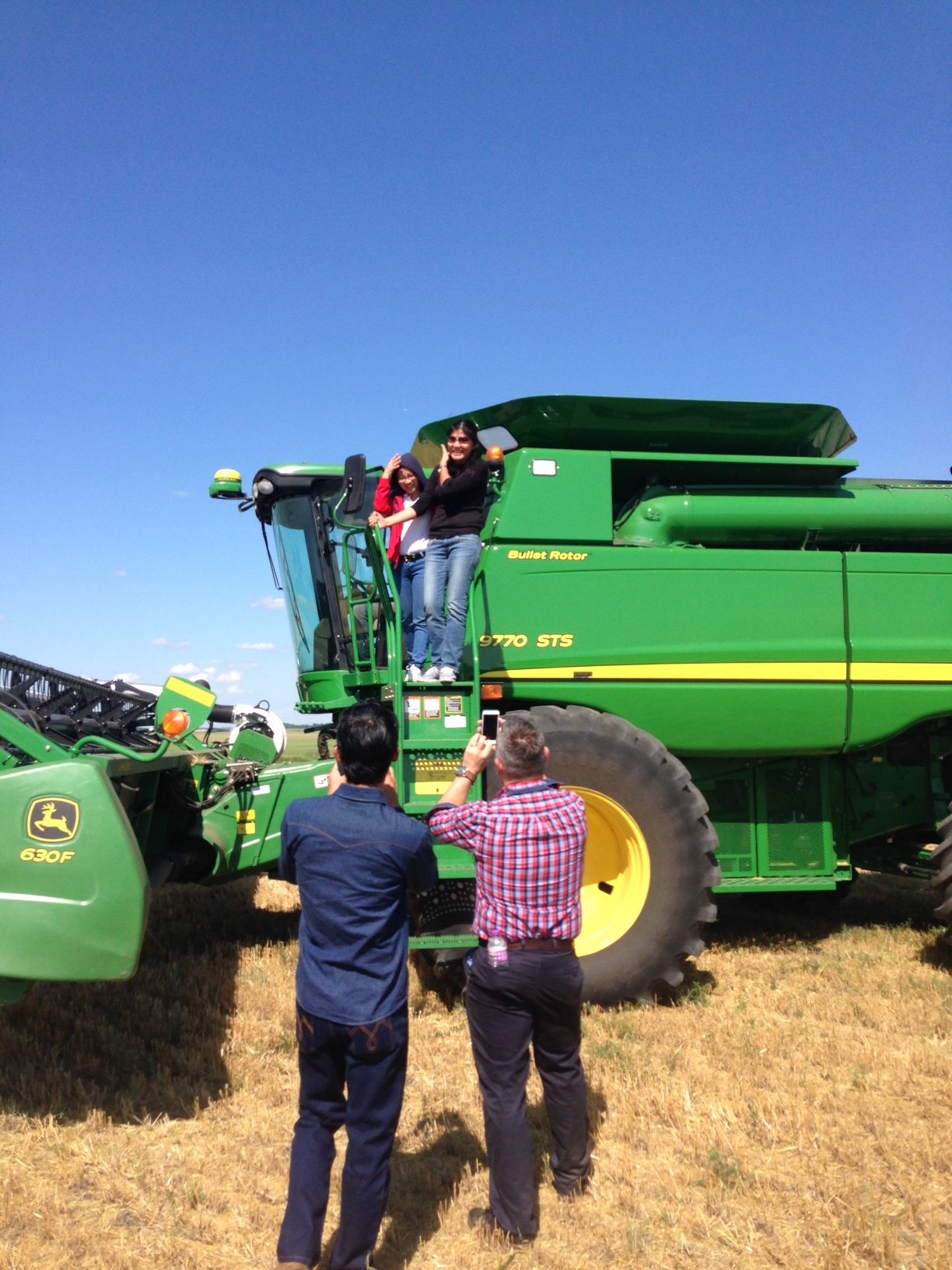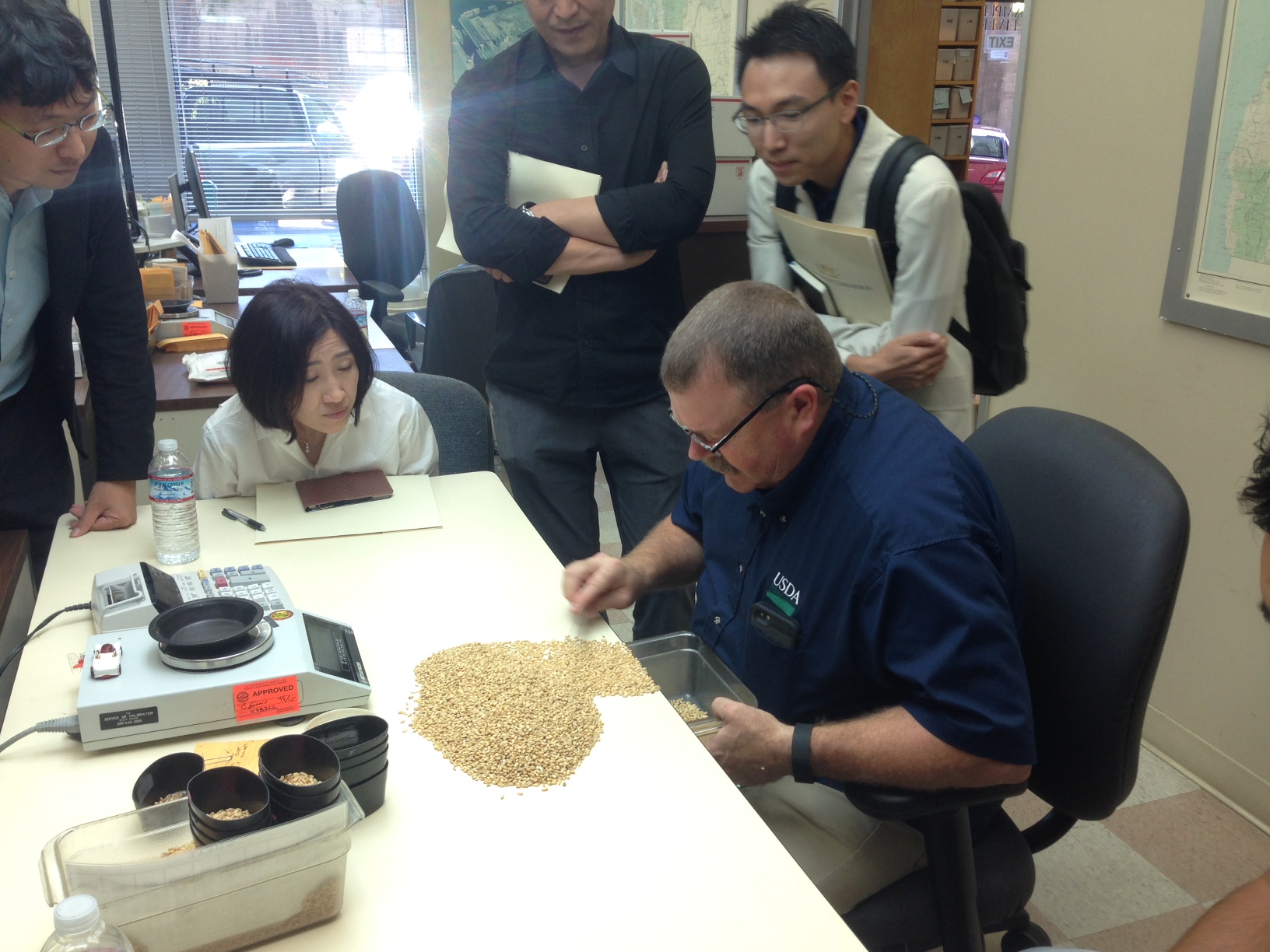When making major purchasing decisions, there are a variety of factors to consider and balance. Global wheat buyers typically consider price, reliability, customer service and wheat quality, and U.S. Wheat Associates (USW) makes it possible for overseas wheat buyers to review these factors with the people who develop, produce and sell U.S. wheat.
USW welcomed a trade team of four Korean executives from major flour milling companies to the United States July 16 to 23, 2017. USW collaborated with the Montana Wheat & Barley Committee (MWBC), Washington Grain Commission (WGC) and the Oregon Wheat Commission (OWC) to organize and host this trade team. Funding also came from the USDA Foreign Agricultural Service (FAS).
“Three of the team members recently took on new responsibilities for wheat purchasing, so this experience was essential to help them learn about the U.S. quality assurance system and to better understand the wheat supply chain,” said Chang Yoon Kang, USW Country Director for Korea. “They had a firsthand look at the 2017 crop, which will help them prepare their upcoming purchasing plans.”
USDA reports that in marketing year 2016/17, South Korea imported 1.13 million metric tons (MMT) of U.S. wheat, including U.S. soft white (SW), hard red winter (HRW) and hard red spring (HRS) wheat.
Kang, who led the trade team, explained that the Korean wheat foods market is developing in a way that is similar to the U.S. market. End-product flour specifications in Korea are becoming more complicated because consumers demand quality and an increasingly wide range of products.
The team began its trip in Montana, where it immediately took a broad look at the complete supply chain with visits to the Northern Ag Research Center, CHS Big Sky, EGT, LLC, and Columbia Grain. The team members also visited MWBC Director Randy Hinebauch’s farm and observed the HRS crop harvest.
Next, the team traveled to Washington for a focus on wheat breeding and research. During a visit to the USDA Agricultural Research Service (ARS) Western Wheat Quality Lab in Pullman, the team participated in a blind taste test for noodles produced with flour from various varieties and wheat classes, and provided their feedback.
“The team had an extensive discussion about how quality is determined to correlate with end-users,” said Glen Squires, WGC CEO. “The lab team explained how over time, the aggregate quality of Pacific Northwest wheat has been increasing as new varieties are released.”
The team met with three breeders: Arron Carter, Washington State University (WSU) winter wheat breeder; Mike Pumphrey, WSU spring wheat breeder; and Kim Campbell, ARS club wheat breeder. They explained the breeding process and shared what they have learned from previous experiences meeting with customers and discussing end use needs, and how they have applied that knowledge to their work.
The team also stopped by some local SW and club wheat fields.
“Korea was one of the first countries I visited as a USW board member,” said Gary Bailey, USW board member from the WGC, and a wheat farmer from St. John, Wash. “I strongly feel it is important to listen to our buyers to better understand their needs and concerns, along with what they like. I appreciate being able to meet with these customers to discuss this year’s crop with them.”
On the last leg of their trip, the team traveled to Oregon, and in Portland met with the Wheat Marketing Center (WMC), Federal Grain Inspection Service (FGIS) and Pacific Grain Exporters Association. They also visited the Columbia Export Terminal and toured some farms in the Willamette Valley.
“This trip let us see firsthand, the quality of U.S. wheat and to meet the people who grow it,” said team member Dong Bae Nam, Executive Director, Sajodongaone Company. “I came with questions about U.S. wheat production, and meeting with FGIS and learning about the wheat breeding system showed me the quality and safety of U.S. wheat. We appreciate the hospitality and opportunity to build relationships with U.S. farmers.”
USW’s mission is to “develop, maintain, and expand international markets to enhance wheat’s profitability for U.S. wheat producers and its value for their customers.” USW activities in more than 100 countries are made possible through producer checkoff dollars managed by 18 state wheat commissions and cost-share funding provided by USDA’s Foreign Agricultural Service. For more information, visit our website at www.uswheat.org.
# # #
Nondiscrimination and Alternate Means of Communications
U.S. Wheat Associates prohibits discrimination in all its programs and activities on the basis of race, color, religion, national origin, gender, marital or family status, age, disability, political beliefs or sexual orientation. Persons with disabilities who require alternative means for communication of program information (Braille, large print, audiotape, etc.) should contact U.S. Wheat Associates at 202-463-0999 (TDD/TTY – 800-877-8339, or from outside the U.S.- 605-331-4923). To file a complaint of discrimination, write to Vice President of Finance, U.S. Wheat Associates, 3103 10th Street, North, Arlington, VA 22201, or call 202-463-0999. U.S. Wheat Associates is an equal opportunity provider and employer.

